Available courses

This module is a link to the NDIS Commission Course, this course is not owned or maintained by EP.
This
module is an interactive online course that explains the obligations of
workers under the NDIS Code of Conduct – from the perspective of NDIS
participants. It was developed in consultation with the sector,
including NDIS providers and people with a disability.
- Organization: Indus Care

The National Disability Insurance Scheme (Complaints Management and
Resolution) Rules 2018 require registered NDIS providers to have an
effective system for management and resolution of complaints about the
supports or services they provide.
- Organization: Indus Care

NDIS providers that are registered with the NDIS Quality and Safeguards
Commission require an incident management system to record and manage
incidents that occur in connection with providing supports and services
to people with disability.
- Organization: Indus Care

This module describes in detail, the nature of the 6 reportable incident types under the NDIS Legislation.
- death of a participant
- serious injury
-abuse or neglect
- unlawful physical conduct
- sexual misconduct
- unauthorised restrictive practice
- Organization: Indus Care

This module equips support workers with the knowledge required to
prevent and control infection according to current Work Health Safety
(WHS) legislation, standards and industry codes of practice.
- Organization: Indus Care

Fires can destroy property, cause injuries, and in a worst-case scenario
take lives. Everyone is at risk of a fire, with adequate training
people can respond promptly and safely to fires.
By the end of this course, you’ll be able to:
• Recognise fire hazards
• Identify ways to prevent fire in the workplace
• Demonstrate how to respond in the event of a fire
- Organization: Indus Care
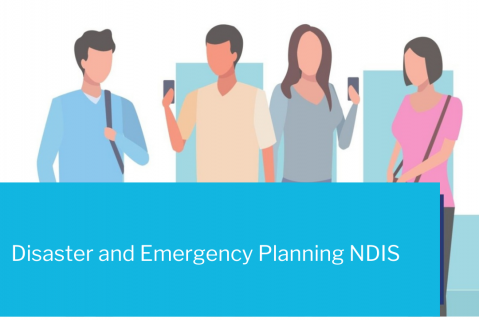
Emergency and disaster management
This induction/training is for all staff including: managers,
business owners, support workers and allied health. Anyone who is
employed in your business. It is mandatory to induct staff to your
Disaster and Emergency Policy.
To address the management of NDIS supports and services during
sustained disruptions such as COVID-19, a new NDIS Practice Standard has
been developed to strengthen guidance to registered NDIS providers on
complying with their obligations to ensure the health, wellbeing and
safety of the NDIS participants they support during COVID-19, or future
emergencies or disasters.
- Organization: Indus Care

This course will cover:
What is a support plan?
What must be done in preperration of creating a support plan
The process of creating an NDIS support plan
Areas to be mindful of when creating and implementing a support plan
Implementing the Support planincluding ongoing support and monitoring the effectiveness
Interagency Collaborations and your obligations.
- Organization: Indus Care
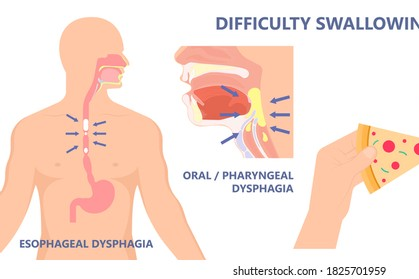
Supporting people with issues concerning eating, drinking and swallowing at Mealtimes.
Please download your manual now.
Have it open while you listen to the 40 minute presentation.
Keep your manual in the workplace or available for reading on your smartphone or tablet.
Currency: The NDIS Commission requires that staff have an annual refresher on Mealtime Management.
- Organization: Indus Care

This video has been developed by the NDIS Commission. Effective Policy
is not charging a fee for this video, we are simply placing it in the
mandatory module package for provider convenience and having 'one
gateway'.
Questions answered successfully will lead to a Certificate of Completion.
We have placed a 3 year expiry date on this training to ensure staff are always up to date with Safe and Enjoyable Mealtimes.
- Organization: Indus Care

This module explains Food Safety. Information in this module will inform
you of what is expected from you as an employee in an NDIS environment.
- what is food safety?
- Food Standards Aus
- High risk Populations
- High risk foods
- Precautions to take
- How to hand wash correctly
- Cross contamination
- Safe storage
- Organization: Indus Care

This module is about the way in which NDIS workers ensure that
medication storage, transportation and administration is safe,
effective, and is in accordance with relevant legislation and standards.
- Organization: Indus Care

This module has been updated 27/9/23 to better align with the learning competencies of HLTHPS006 Assist Clients with Medication
This module comes with a downloadable learner guide. The learner
guide is approved under the Australian Qualifications Framework for
Assist with Medication.
This module describes the skills and knowledge required to prepare
for and provide medication assistance, and complete medication
documentation. It also involves supporting a client to administer
medication.
This module applies to community services and health workers with
authority in their state or territory to assist with the administration
of medication.
Included in this course is a downloadable learner's guide which you will refer to when answering the chapter quizzes.
By the end of this module, you should have foundational understanding of the following:
Preparing to assist with medication
Preparing the client for assistance with the administration of medication
Supporting clients with the administration of medication
Handling medication error
Completing medication documentation
Practice standards for medication management in the NDIS
- Organization: Indus Care

This module has been developed to ensure that workers understand their
responsibility to provide appropriate management of clinical waste with
consideration to participant's privacy, dignity and personal safety.
- Organization: Indus Care

The NDIS Commission requires participants to accesses behaviour support
that is appropriate to their needs which incorporates evidence-informed
practice and complies with relevant legislation and policy frameworks
This module will take you 10-15 minutes to complete
- Organization: Indus Care

A Behaviour Support Plan (BSP) specifies a range of person-centred,
proactive strategies that focus on the individual needs of a person. A
BSP may include “approved” and “regulated” restrictive practices that
may be required to assist a participant to reach their goals and
aspirations.
This module will take you 10-15 minutes to complete
- Organization: Indus Care

The Positive Behaviour Support Capability Framework wa developed to
strengthen the safeguards for people receiving behaviour support and
demonstrate a clear commitment to the reduction and elimination of
restrictive practices in the NDIS sector.
- Organization: Indus Care
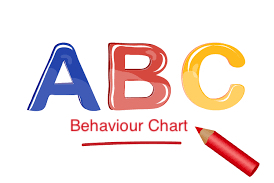
This course explains how to use an Antecedent Behaviour Consequence Chart.
An ABC chart should be used for participants who:
- Have a behaviour support plan with restrictive practice
- Have a behaviour support plan without a restrictive practice
- Are exhibiting challenging behaviours without a behaviour support plan
- Organization: Indus Care

his module describes the skills and knowledge required to identify
behaviours of concern and to develop and promote positive behaviour
supports as part of an individualised behaviour support plan for a
person with disability, using a person-centred approach.
This module applies to workers in varied disability services
contexts. Work performed requires a range of well-developed,
person-centred skills where some discretion and judgment is required and
workers will take responsibility for their own outputs.
By the end of this module, you should be able to:
- Define and explain the Positive Behaviour Support (PBS) framework
- Describe the key components of PBS and be able to demonstrate them when dealing with participants and
their families, as well as other staff members
- Come up with strategies to support behavioural change and/or manage behaviours of concern
- Explain what is needed in a behaviour support plan and be able to confidently co-create them with
appropriate team members
- Organization: Indus Care

The NDIS Code of Conduct promotes safe and ethical service delivery by
setting out expectations for the conduct of both NDIS providers and
workers.
The NDIS Code of Conduct applies to:
- registered NDIS providers and their employees
- unregistered NDIS providers and their employees
- providers delivering information, linkages, and capacity building (ILC) activities
- providers delivering Commonwealth Continuity of Support Programme services for people over the age of 65
This module will outline the purpose and scope, and the seven
elements of the Code of Conduct. At the end of this module you will be
required to test your knowledge. Once you have passed the quiz, a
Certificate of Completion will be provided.
- Organization: Indus Care

This module will set out support worker’s responsibilities relating to
collecting, using, protecting and releasing personal information in
compliance with privacy legislation; including collection, retention and
dissemination of personal information
- Organization: Indus Care

Zero Tolerance is an initiative led by NDS in partnership with the
disability sector. It assists disability service providers to
understand, implement and improve practices which safeguard the rights
of people they support. Zero Tolerance is built around a national
evidence-based framework.
The Zero Tolerance commitment is a commitment to recognise, raise
and respond to any deviation from the human rights of people using
disability services. It is a personal and organisational commitment to
always have our eyes open and always be doing better to support rights.
- Organization: Indus Care

The NDIS Commission aims to uphold the rights of people with disability,
including the right to dignity and respect, and to live free from
abuse, exploitation, and violence. This is in keeping with Australia’s
commitment to the United Nations Convention on the Rights of Persons
with Disabilities.
The Commission will achieve this through:
- Empowering people with disability to exercise choice and control
in the support services they receive, while - ensuring appropriate
protections are in place
- Building the capacity of people with disability, their families,
and their carers to make informed decisions about NDIS providers
- Responding to and managing concerns and complaints
- Supporting a strong and viable market for disability supports and services
- Organization: Indus Care

Under the NDIS Commission, a worker is anyone who is employed or
otherwise engaged to provide NDIS supports and services to people with
disability. Workers can be paid or unpaid, and can be people who are
self-employed, employees, contractors, consultants, and volunteers.
Workers will need to understand and comply with the NDIS Code of
Conduct, which outlines the expected behaviour of workers, reportable
incident requirements, and any additional competencies required for
their role.
- Organization: Indus Care

Discrimination is when a person is treated less favourably because of
disability. There are laws in every State, as well as Federal laws,
against disability discrimination. These laws will generally apply to
the NDIS and to the services provided through the NDIS.
- Organization: Indus Care

This module explores and encourages awareness for support workers manual
handling techniques when supporting people with disability, through
addressing what makes a manual task hazardous and how to manage the
risks associated with it.
- Organization: Indus Care

This module will explore how a person centred active approach allows
organisations to provide accessible, responsive and flexible services
that meet the diverse needs and preferences of NDIS participants.
- Organization: Indus Care

This module will provide knowledge on how to support each participant to have control of their funding and finances
- Organization: Indus Care
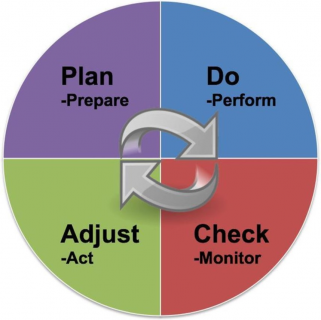
This module will provide a clear direction to embed ‘Continuous Quality
Improvement’ within your organisation’s culture, to bring awareness to
all staff in relation to the legislative and regulatory frameworks
underpinning the NDIS services we provide.
- Organization: Indus Care

An organisation has specific responsibilities to help reduce potential
serious harm to affected people and to comply with the Notifiable Data
Breaches (NDB) Scheme. This module will provide support workers with
information regarding reporting methods for notifiable data breaches and
the necessary steps to reduce data breaches.
- Organization: Indus Care

The NDIS is committed to working alongside people with disability from
diverse and complex backgrounds to achieve access to, and outcomes from,
their NDIS Plan on an equal basis with the broader population.
- Organization: Indus Care
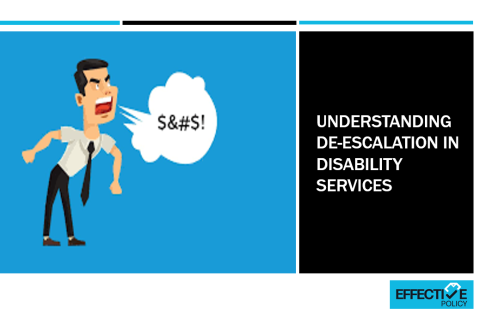
Overview of de-escalation
Understanding human behaviour
Instinctive reactions
What can trigger an escalation
Escalation levels
Diffusing, calming and resolving
Safer de-escalation P.A.L.M.S
Diffusing, calming and resolving
Personal safety
Post incident response
Assessment is required.
- Organization: Indus Care

A comprehensive module clearly outlining the legal and professional
requirements for writing Case Notes in the NDIS. Specifically aimed at
Support Workers and Allied Health Professionals.
- Organization: Indus Care

This learning module is designed based on the Restrictive Practice
Guide: Safe Transportation(Feb 2023, V2) with the intention of:
promoting the rights and inherent dignity of people with disability,
assisting in identifying the use of regulated restrictive practice when transporting people with disability,
highlighting the special considerations and safeguards relevant to the use of transportation for people with disability,
providing practice advice consistent with a positive behaviour
support framework, contemporary evidence informed practice and the
intent to reduce and eliminate the use of restrictive practices
- Organization: Indus Care

In this course we will discuss the importance of professional boundaries.
We will cover the following topics:
- What are Professional Boundaries?
- Why are Professional Boundaries important?
- How do we know what boundaries to adhere to?
- How to set clear boundaries
- Qualities of a good support worker
- Engaging in conversation with clients
- Simple rules for maintaining boundaries
- Organization: Indus Care

This module has been developed to ensure that workers understand their
responsibility to provide appropriate subcutaneous injections with
consideration to participant's privacy, dignity and personal safety.
- Organization: Indus Care

This module has been developed to ensure that workers understand their
responsibility to provide appropriate complex wound management with
consideration to participant's privacy, dignity and personal safety.
- Organization: Indus Care
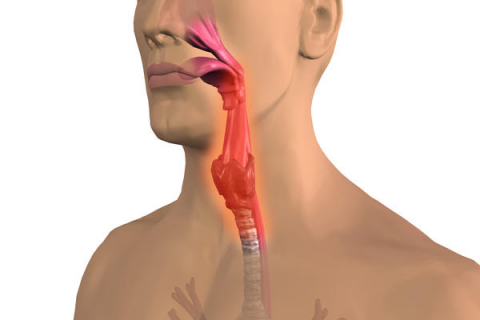
Dysphagia and Choking (Australia)
Topics Covered:
Introduction
What is dysphagia?
How big a problem is it?
Types and causes
Normal swallowing
Signs and symptoms
Diagnosing Dysphasia
Mealtime Management Plan
Emergency handling
CPR training
- Organization: Indus Care